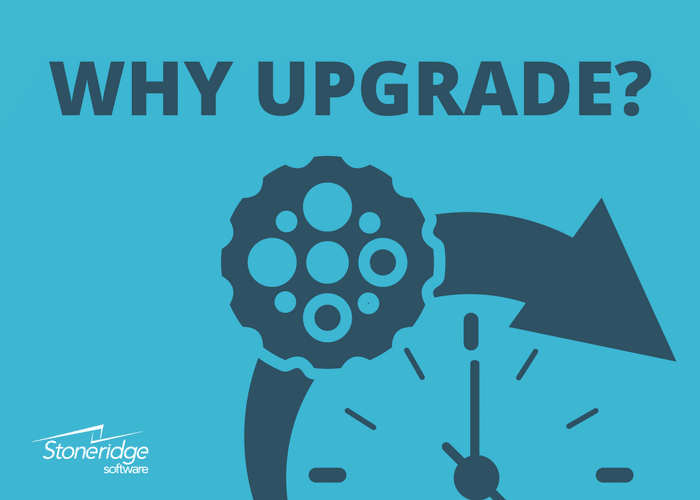Источник:
https://stoneridgesoftware.com/why-s...-erp-solution/
==============

In the Enterprise Planning (ERP) world, we often explain that implementing your solution is like building a house – start with a strong foundation, add options, etc. If that were the case, ERP upgrades might correspond to adding higher efficiency windows or appliances, installing infrastructure for “smart home” features, addressing building code changes, or minimizing future service costs.
The key tangible benefits of a Dynamics AX upgrade or a Dynamics NAV upgrade (or any ERP solution upgrade) are:
- Efficiency
- Added Features
- Compatibility
- Supportability
Efficiency
Upgrading your system will increase performance and refresh the user experience.
Just like new windows and furnaces are more efficient today than when your home was first built, so too is computer technology. Technology is continually evolving and not too many years ago, we wouldn’t have imagined the feasibility of cloud-deployed solutions, smartphones, tablet adoption, and the general speed at which we are now able to do business.
On the hardware side, processors are faster, RAM is cheaper, and solid-state drives are much more prevalent. Additionally, network improvements allow for remotely deployed solutions (cloud/Azure, hosted) – removing much of the IT responsibility from your organization. On the software side, Windows and SQL improve regularly to take advantage of both those hardware changes and other shifting tools.
If you are still using a solution architected years ago, it is not taking advantage of many of these changes. As a result, it will start to feel “sluggish” when compared to your other software. Productivity suffers due to actual software performance and is also influenced by increased user reluctance to engage the tool.
Features
Upgrading introduces new features and functionality.
There is buzz right now over the Internet of Things (IoT). In the home, this may mean that your refrigerator is ultimately able to provide shopping lists or even place orders at the grocery store. Today, applications already allow smarter heating and cooling regulation, lighting control, plant monitoring and many other comforts. Like improvements to the home afforded by the IoT, newer ERP solutions also provide features not available in prior versions.
Every ERP solution evolves to stay competitive. This evolution can sometimes include changes to take advantage of infrastructure improvements or can provide new and improved functionality. If the solution is competitive in the market, you can always be assured that upgrading to the newest version will do more for your business than only taking advantage of technology changes. It will also provide more stream-lined, role-tailored workflows, new functional areas, and better interface options
Compatibility
Upgrading ensures that your business eco-system will be in harmony.
You might have had the experience of starting a home project and realizing that our house is not up to “code.” New regulations never cease. Likewise, the assumptions that your ERP solution was originally written against have changed. Windows versions alone can account for significant compatibility issues if you continue to try to run older software programs. External programs that your ERP solution talked to previously may no longer be able to communicate, once updated.
New business tools are continually introduced and older tools are continually evolving. Some examples of these include smartphones, tablets, VOIP, web stores, credit card integration, business intelligence (BI) applications, shipping software, and Microsoft Office.
Supportability
Upgrading holds down ongoing support costs.
Much like a plumber or electrician is usually able to work with (or around) outdated fixtures and piping, your ERP solution provider is also likely to provide support for older versions of your software. But also like that plumber or electrician, they are not as efficient in that older environment. The scenario also might occur that your vendor may no longer offer support of any kind for the environment.
If you are on version 4.0 of an ERP solution from ten or 15 years ago and the current release is version 8.0, you will likely find that your ERP partner has a limited set of resources that have direct experience with your release. You are still a paying customer, so support will be available – it just becomes more scarce and expensive. Because your partner is implementing new systems and extending those workflows, outputs, and configurations in different and exciting ways, they will have less applicable tools for your legacy version. By being on a more current version, you will often find that your partner is more readily able to introduce additional perks (custom micro-solutions, reports, etc…) not applicable in the older releases of the solution.
For more on this topic, check out my other posts in the Why Upgrade? series:
What Should You Expect During Your ERP Upgrade? and
How Can You Get the Most from Your ERP Upgrade?
If you have questions about whether its the right time for your company to upgrade, please contact us.
Let's talk about an upgrade
Источник:
https://stoneridgesoftware.com/why-s...-erp-solution/